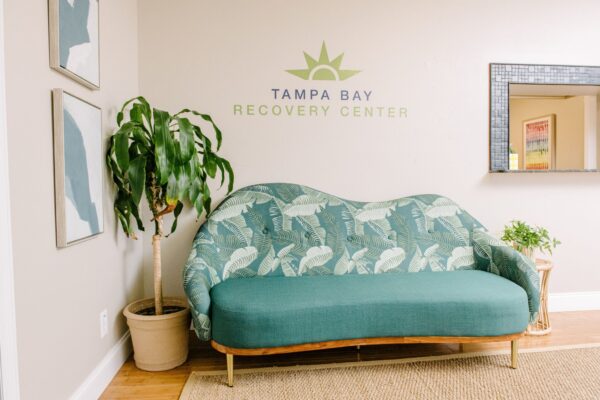Detox
Detoxification is the first step in the journey to recovery and wellness. Fortunately, the detox services of Gulf Coast Recovery can provide professional, effective, and compassionate care for those struggling with a substance use disorder or alcohol use disorder. Read on to learn how our detox centers in Tampa can prepare you for the life you’ve always wanted.
Are You Ready To Change Your Life?
Take Action Now.
What is Detox?
Known commonly as detox, detoxification is the process of ridding toxic substances from the body. The terms “detox” and “rehab” are sometimes used interchangeably, even among medical professionals. However, detox differs from rehab in that its aim is to stabilize the patient and minimize their withdrawal symptoms. Rehab, meanwhile, refers to the wide array of services promoting recovery from addiction.
How Does Our Detox in Tampa Work?
The process of drug or alcohol detox at our detox centers in Tampa tends to vary from person to person. Still, most people move through the following three stages:
- Evaluation. The incoming patient is screened for physical and mental health issues. Also, the patient’s history of substance use is taken down.
- Medical stabilization. During the detox period, which can take anywhere from two to five days, patients are stabilized with medical and psychological therapies, including the administering of prescription medications to treat their withdrawal symptoms, if necessary.
- Preparation for treatment. With detox completed, preparation for comprehensive addiction treatment follows.
How Do I Know I Need Detox?
“How do I know I need detox?” is a personal question, and it should have a personal answer. Still, some of the more common signs for knowing you need detox include:
- Increased tolerance and use. If you find you need larger and larger amounts of the substance to achieve the desired effect, your body has developed tolerance. This leads to increased consumption, raising the risk of addiction and many other health complications.
- Failed attempts to quit. If you’ve tried to quit on your own but have been unsuccessful, it may indicate professional help is needed.
- Physical withdrawal symptoms. Experiencing physical withdrawal symptoms when attempting to stop may be a sign that your body has grown physically dependent on the substance. Withdrawal symptoms can range from mild nausea and sweating to hallucinations and seizures, depending on the substance and the extent of use.
- Relationship problems. One of the chief features of substance use disorder or alcohol use disorder is that it warps the addict’s views on what is important in life. When someone focuses their time and energy on using a particular substance, relationships with friends and loved ones often take a backseat.

What Substances Require Detox?
Drug and alcohol detox can produce physical and mental symptoms resulting from the substance leaving the body. Withdrawal symptoms can be unpredictable, which makes medical supervision during detox essential. Substances that require detox include:
Alcohol
Extended alcohol abuse can force the body to adjust to alcohol’s depressant effects, creating a “new normal” for the user’s neurological pathways that enable the body to function. Therefore, detox can be extremely uncomfortable for longtime users, as they might struggle with anxiety, sleeplessness, hallucinations, and tremors.
There are three distinct stages of alcohol withdrawal, each with its own symptoms.
- The first stage begins about six hours after the last drink. Withdrawal symptoms in this stage include abdominal cramps, nausea, anxiety, and sleeplessness.
- The second stage, which takes place roughly 24 to 72 hours after the last drink, often includes symptoms like high blood pressure, increased body temperature, and abnormal heart rate.
- The third stage, which takes place from two to four days after the last drink, can feature symptoms like fever, hallucinations, and seizures, particularly in longtime drinkers.
Xanax
Xanax is the brand-name prescription sedative prescribed by medical professionals for people living with anxiety disorders or insomnia. It is part of a class of drugs known as benzodiazepines. Depending on the user’s drug history, detox from Xanax can be complicated. Still, the withdrawal timeline for Xanax tends to move through three distinct stages.
The first stage, known as “early withdrawal,” occurs within 24 hours of discontinuing Xanax. Symptoms during this stage can be as mild as a headache but often grow more severe.
Acute withdrawal happens in the second stage, about 48 hours to four days after the last Xanax dose. Symptoms include insomnia, anxiety, muscle aches, suicidal thoughts, depression, and memory problems. After this, symptoms begin to subside and are often gone within another two to five days.
Opioids
Opioids are synthetic drugs used to treat pain. Prescription opioids include Oxycontin (oxycodone), Vicodin (hydrocodone and acetaminophen), Dilaudid (hydromorphone), and morphine. Unfortunately, two thirds of all drug overdose deaths in the U.S. are attributed to opioids.
Though people’s experiences may vary, opioid withdrawal follows a general timeline:
Initial opioid withdrawal symptoms tend to appear six to 12 hours after the last dose. These symptoms include anxiety, muscle aches, insomnia, and sweating.
Withdrawal symptoms tend to peak in intensity at any point during the first three days of detox. During this “peak phase,” a person can experience severe opioid withdrawal symptoms like abdominal cramping, nausea, vomiting, rapid heart rate, and high blood pressure.
Benzodiazepines
Benzodiazepines, or benzos for short, are a class of drugs that include Xanax, Klonopin, Valium, and Ativan. They are not intended to be taken over the long term because long-term use can create physical and psychological dependence. Benzo withdrawal symptoms range from intense cravings and panic attacks to nausea and muscle pain.
Early, less intense withdrawal symptoms tend to occur within 24 to four days after the last dose. More acute symptoms tend to peak around the second week after the last dose and can last for as short a period as a couple of days to as long as several months.
What Credentials Should a Detox Center Have?
Accreditation from recognized bodies like The Joint Commission signifies quality healthcare. The center should follow evidence-based practices and maintain an environment conducive to recovery.
Reputable detox centers in Tampa should have licensed medical professionals, like doctors and nurses experienced in the treatment of addiction. They should offer medically supervised detoxification, which ensures the safe management of withdrawal symptoms. Comprehensive assessments, personalized treatment plans, and access to mental health support are all essential.

Can I Detox From Home?
Detoxing from drugs and alcohol at home can be risky and potentially dangerous, especially when it comes to substances with severe withdrawal symptoms. A medically supervised detox center is strongly recommended to ensure safety and comfort. Home detox, on the other hand, lacks the necessary medical expertise should any complications arise. Plus, the chances for a successful detox are higher when conducted in a professional setting.
How Long Does Detox in Tampa Last?
Most reputable detox centers in Tampa offer programs that last anywhere between three days and two weeks. Of course, many factors play into how long each detox program lasts. The most important factor in determining how long the detox process lasts is which substance needs to be flushed from the body, since some substances leave the body faster than others.
Services We Offer
Gulf Coast Recovery Center offers more than just high-quality, medically supervised detox. We also offer the following services to promote full-fledged addiction recovery:
- EMDR Therapy
- Brainspotting Therapy
- Genetic Testing
- Holistic Therapy
- Medication-Assisted Treatment
- Psychiatry
- Family Therapy

Medically Reviewed
Medically Reviewed by
Jennifer Strong, LMHC
Written by Gulf Coast Recovery Staff Updated on January 12, 2024
Get Help Now
Rehab in Tampa, FL
Mental health disorders and addiction can severely impact your quality of life. But there is hope for recovery. Call Gulf Coast Recovery today to begin treatment with us.
Facility Image Gallery
Get The Help You Need With Gulf Coast Recovery In Tampa, FL
Finding the most appropriate treatment for an alcohol use disorder or substance use disorder is key to taking back your life. Gulf Coast Recovery’s detox centers in Tampa boast medical professionals who strive to provide the resources you need. Contact us today.









 They recognized me as an individual. This is not a place that has cookie-cutter treatments that they attempt to force every patient to fit into. They realize that different people with similar problems respond differently, some better to one type of treatment and some not so much. I feel like that is why I succeeded here.
They recognized me as an individual. This is not a place that has cookie-cutter treatments that they attempt to force every patient to fit into. They realize that different people with similar problems respond differently, some better to one type of treatment and some not so much. I feel like that is why I succeeded here.



